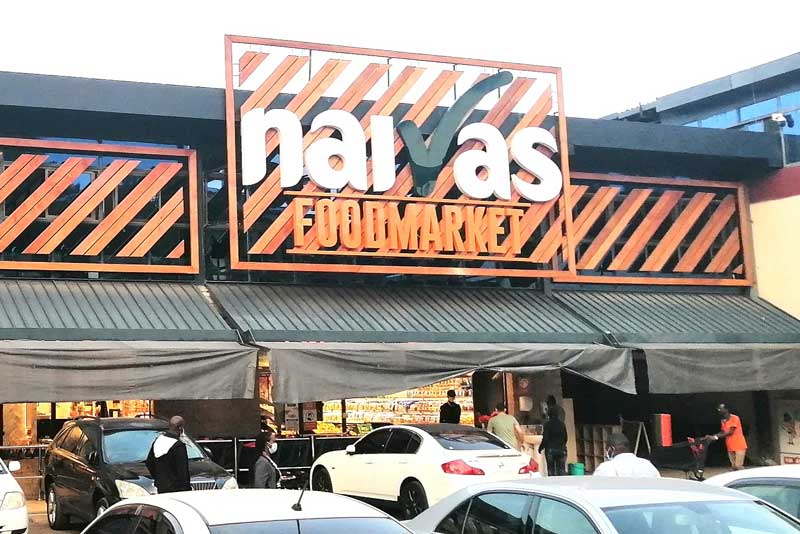By Everlyne Situma
Beatrice Njoki, the head of compliance at Kenyan supermarket chain Naivas, has been on the go since she was hired 11 months ago.
The 31-year old runs Naivas’ newly created environmental health and food safety department, putting her in charge of the quality of the meat, milk, and vegetables at the chain’s 71 stores. In recent months, Njoki has been rolling out hygiene rules, and auditing suppliers—part of a major effort to implement international-caliber food safety standards.
"The reason why we came onboard is mainly to protect the brand and win customer confidence,” said Njoki, who is part of a team of two risk managers. “Consumers need the assurance that whatever they are getting from our stores is safe for use."
Naivas is one of a growing number of African supermarkets that are adopting international food safety standards, a trend experts say could dramatically improve the quality of meat and produce on local shelves. That is considered crucial on a continent where contaminated food sickens more than 91 million people every year and causes $110 billion in economic damages, much of it in lost productivity.
In Kenya, the push for higher standards follows an exposé by local broadcaster NTV, titled Red Alert, that found some Kenyan supermarkets use harmful chemicals to keep meat looking fresh. But even chains not implicated in the scandal are embracing food safety.
Many see stricter standards as an investment in their brand and an avenue to sales growth, says Sarah Ockman, IFC's Lead for Manufacturing, Agribusiness, and Services Advisory. Others are being pushed by risk-conscious investors who worry about the financial fallout of a food poisoning scandal, she adds.
“We are witnessing what I think is the beginning of a sea change,” says Ockman. “Farmers, food processing companies, grocery stores—they are all starting to take food safety much more seriously, and that’s a good thing for the health and wellbeing of Africans.”

Naivas store in Kilimani, Nairobi. Photo by Everlyne Situma/IFC
A Risky Proposition
Like their African counterparts, Kenyan consumers face numerous food safety threats such as contaminated vegetables grown along sewer lines, fresh meat with toxic chemicals, and peanut butter and maize flour brands containing aflatoxin, a naturally occurring fungus that is harmful to humans and animals.
A 2014 study by the International Livestock Research Institute shows Kenya is among the world's hotspots for aflatoxins and has recorded two major illness outbreaks, including in 2004, which resulted in 100 deaths and more than 300 cases of poisoning.
Along with often-dire health consequences, contaminated food has severe economic repercussions. A 2018 World Bank report revealed that unsafe food costs low- and middle-income economies $110 billion in lost productivity and medical expenses each year.
To counter those threats, many African businesses have begun partnering with international institutions, like IFC, to improve their food safety standards.
Take Azalaï Hotel Abidjan in Côte d'Ivoire, which in 2018 worked with IFC to raise its food quality and hotel cleanliness to internationally certified standards. The company says this intervention has helped grow its business and made it more resilient during the pandemic.
Laham Industrie, a meat processing company in Mali, got an international certification for its meat products and can now bid to supply meat to United Nations agencies.
Twiga Foods, a food distribution company, has since 2019 trained more than 100 staff and farmers on food safety management and helped 18 farms in Kenya attain the GLOBALG.A.P certification standard, which will ensure 100 percent product traceability and quality assurance.
Although the GLOBALG.A.P. certification is not a requirement in domestic markets, increasingly, food companies are applying global standards to local food products for long-term business benefits. A 2019 analysis by GLOBALG.A.P. found that 5,507 African food producers were certified under a leading European testing system. That marked the biggest growth of any region in the world.
Furthermore, in over a decade, IFC's food safety programs have helped its clients increase sales by over $709 million by implementing food safety management systems.
Solidifying Practices
Though Naivas conducts regular supplier and store audits as per internationally accepted standards, it's becoming essential for the company to grow its food safety systems. “We have had aspects of food safety, but it's not matured. That is why we established the compliance department—so that we can get the necessary stakeholders to support us in developing it," said Njoki.
Those include IFC, which recently signed an agreement to support Naivas as it builds a food safety management team and its internal capacity to audit and police its food safety practices. IFC will also help the retailer to attain ISO 22000, an international food standard developed by the International Organization for Standardization, in its three stores and coach the team to roll out and onboard the system in over 70 stores.
Naivas is optimistic its new standards will help it win over customers like Sam Wanjohi, a Nairobi resident who has been rattled by the Red Alert coverage. Meat consumption in his home has dropped to one kilogram per week from three kilograms. Also, he has become very picky about produce, inspecting vegetables for bugs and damage. “We were all skeptical of fresh meat and vegetables. We had to find alternatives for meat, but the consumption is slowly improving.”
Naivas is now working to develop a quality assurance system that begins at the farm level and makes it easier to trace food. In a market like Kenya, filled with consumers who are more informed than ever, innovations like that are fast becoming vital. “Sale of safe food is our priority,” said Njoki. “Implementing a robust food safety management system in partnership with IFC will definitely strengthen our position as the largest retail in Kenya and win customers’ confidence.”
Published in June 2021
